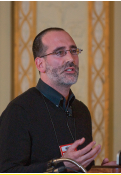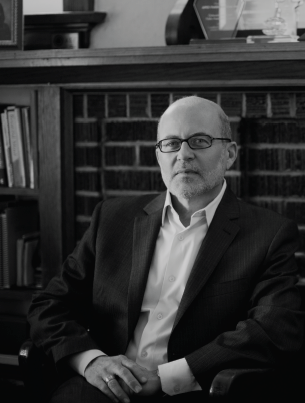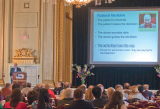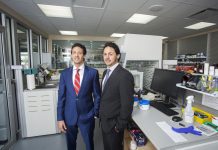Orthomolecular Medicine describes the practice of using vitamins, minerals, amino acids and other essential compounds, in therapeutic amounts, according to an individual’s particular biochemical requirements, to establish optimum health. The term “orthomolecular” was coined by Linus Pauling, PhD, two-time Nobel laureate, in his ground-breaking article in Science in 1968.
Beginnings
More than 15 years before Linus Pauling coined the word “orthomolecular”, Abram Hoff er and his colleague Humphry Osmond established the important role played by vitamins B3 and C in the treatment of schizophrenia. Pauling’s interest in the therapeutic use of nutrients, beyond alleviating defi ciency diseases, was spurred by his serendipitous reading of Hoff er’s and Osmond’s 1966 book, “How to Live with Schizophrenia.” Pauling wished to convey the idea that illnesses could be treated by correcting the concentrations of specifi c molecules in order to create the optimum molecular environment in the body. Hoff er’s work had a signifi cant infl uence on Pauling, who published “Vitamin C and the Common Cold” in 1970, bringing international attention to orthomolecular medicine. So began the rich 25-year collaboration between Hoff er and Pauling, ending with Pauling’s death in 1994.
Steven Carter
Takes the Lead In the same year that Pauling fi rst wrote about orthomolecular psychiatry, Hoff er established the Canadian Schizophrenia Foundation, a non-profi t, charitable organization to promote the use of Orthomolecular Medicine in the treatment of mental disorders.
Fifteen years later, Hoff er invited Steven Carter to take over as Executive Director for the CSF. Carter had served as Editor of Alive Magazine and Books since 1985, increasing the magazine’s circulation from 50,000 to 150,000. Carter also edited several books while at Alive, including Udo Erasmus’s infl uential “Fats that Heal, Fats the Kill”.
Carter relocated the CSF head offi ce from Regina, Saskatchewan, to Vancouver, BC, where there was a better environment to grow Orthomolecular Medicine. In 1992, he moved to Toronto, where he has run the head offi ce in a 1920’s house for over 20 years. With a limited budget and a staff of two, Carter developed the foundation to encompass several entities: the International Society for Orthomolecular Medicine, the Canadian Society for Orthomolecular Medicine, the Journal of Orthomolecular Medicine, the Orthomolecular Medicine Today Conference, Orthomolecular Health and most recently the Mindful: Children’s Mental Health project. He has collaborated with many other organizations including the CAND, CCNM, OSPCM, CAMH, and IONC.
In keeping with the growing reach and worldwide affi liation of Orthomolecular Medicine, the name of the CSF was changed in 2003 to the International Schizophrenia Foundation and was registered as a 501 (c) 3 charitable organization in the USA. Carter managed the successful Orthomolecular Health public awareness campaign in 2007-2009 which tallied over 275 Orthomolecular appearances in print, TV and radio, and launched a new website http://www. helpyourselfcommunity.org/ featuring the popular advertising campaign.
Today, Carter directs a small staff including: Greg Schilhab, 16-year veteran, website manager, designer, and publications production; Andrew Cuscianna, ROHP, CSOM program manager: and Patricia Drab, administrative assistant and offi ce manager. ere is also a community liaison, who runs the public education programs, manages the volunteer base and directs social media.
Serving in the multiple roles of planner, facilitator, educator, editor, publisher, and producer, Carter has worked to establish diet, nutrition and lifestyle choices as the cornerstones of optimum health, and has consistently kept professional and public attention focused on the importance of individual responsibility in health care. His commitment to Orthomolecular Medicine is demonstrated not only through his staying power but also in his ongoing eff ort to raise awareness of integrative medicine and to educate Canadians to incorporate health care approaches that may not be covered by the present medical system. Celebrating 25 years, Carter’s mission has been a great success and Orthomolecular Medicine is on solid ground.
Serving in the multiple roles of planner, facilitator, educator, editor, publisher, and producer, Carter has worked to establish diet, nutrition and lifestyle choices as the cornerstones of optimum health, and has consistently kept professional and public attention focused on the importance of individual responsibility in health care. His commitment to Orthomolecular Medicine is demonstrated not only through his staying power but also in his ongoing eff ort to raise awareness of integrative medicine and to educate Canadians to incorporate health care approaches that may not be covered by the present medical system. Celebrating 25 years, Carter’s mission has been a great success and Orthomolecular Medicine is on solid ground.

MSc, presenting at the
Orthomolecular Medicine
Today Conference
The Orthomolecular Medicine Today Conference (OMT) e CSF held its fi rst meeting in 1972, intended primarily for the public. Recognizing the need to educate health care professionals in the therapeutic use of nutrients, Carter changed the focus of the CSF meeting, renaming it in 1987 to “Nutritional Medicine Today”, and he introduced its current title, “Orthomolecular Medicine Today”, in 2006. Over 200 clinicians and researchers have presented at the Conference over the last 41 years, in all areas of Orthomolecular Medicine: oncology, psychiatry, cardiology, endocrinology, pediatrics, and immunology. e conference now attracts 250 people to Canada from eighteen countries, including delegates, presenters and exhibitors. e OMT features the annual Dr Abram Hoff er Memorial lecture, the Dr Rogers Prize Lecture, and the Evan Shute Memorial Lecture (see page 48 for report on the 2012 Orthomolecular Medicine Today Conference).
The International Society for Orthomolecular Medicine Founded in 1994 by Carter and Hoff er, the ISOM serves as an umbrella for the existing Orthomolecular Medical societies in 19 countries, providing a network of communication and education through the website: http://www.isom.eu/. Gert Schuitemaker, PhD, in the Netherlands served as president from 1999 – 2009, and Atsuo Yanagisawa, MD, in Tokyo, became the new President in April 2012.
The Canadian Society for Orthomolecular Medicine (CSOM) In May 2009, the Canadian Society for Orthomolecular Medicine was formalized, with three major areas of focus: education, communication and advocacy. CSOM’s purposes are:
• Introduce the term ‘orthomolecular medicine’ to the medical community at large and gain acceptance for its value and place in medicine.
• Formalize an orthomolecular introduction in medical schools across Canada as well as a training program for physicians with a respected teaching facility or CME program.
• Develop a community of practicing orthomolecular health professionals to become spokespeople, lecturers and trainers for the next generation.
• Identify and groom key opinion leaders into Orthomolecular advocates in the fi elds of family medicine and psychiatry.
The CSOM lists 140 members including MDs, NDs, PhDs and RNCPs – a truly integrative medical society. CSOM has presented several CME courses on Depression, Anxiety, Mood Disorders, and Pediatrics and has sponsored Grand Rounds with leading lecturers in several Ontario hospitals. CSOM courses have received accreditation from the College of Family Physicians of Canada.
Jonathan Prousky ND, MSc becomes Editor of the Journal of Orthomolecular Medicine Th e Journal of Orthomolecular Psychiatry was fi rst published in 1971; the title changed to Journal of Orthomolecular Medicine in 1986. When Abram Hoff er died in May, 2009, the JOM editorial board faced the unusual challenge of fi nding a replacement for an editor who had served for 40 years. Th is diffi cult task fell to the able and willing Jonathan Prousky, ND, MSc. Prousky, who is the Chief Naturopathic Medical Offi cer at the CCNM, had interned with Abram Hoff er, and served on the Editorial board for 5 years. Prousky took over as Editor at the beginning of 2010. In April of the same year, he became the fi rst ND to be awarded the Orthomolecular Doctor of Year. Now in his third year as Editor, Prousky has set the Journal on a clear path, maintaining the spirit of his predecessor while making the peer review process more rigorous and formalizing the editing process, with the view to having the JOM be indexed, after 42 years of exclusion, by NLM’s PubMed (Medline). As managing editor, Carter works alongside Prousky and a strong editorial board from North America and Europe. Forty years of the Journal of Orthomolecular Medicine archive are available free at: http:// orthomolecular.org/library/jom/index.shtml














